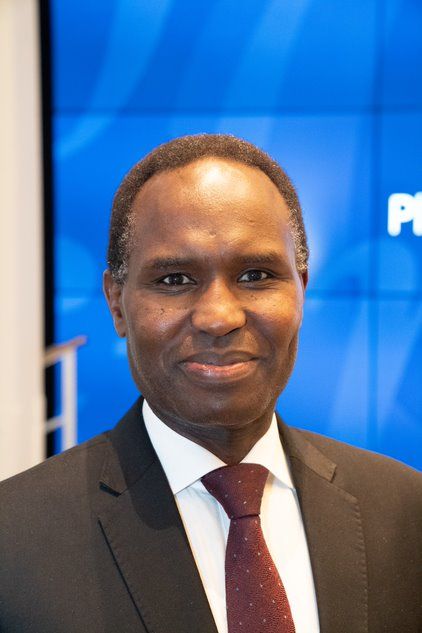Mohamed Elsanousi, executive director of the Network for Religious and Traditional Peacemakers, uses experiences of working with individual and public rights to promote religious peace around the world.
Elsanousi will speak at 2 p.m. Tuesday, June 28, in the Hall of Philosophy as part of the Interfaith Lecture Series and the Week One theme, “America’s Global Conscience.”

His lecture title is “Unlocking our Shared Virtues: Advancing Common Good in an Interconnected World.”
“The main points we are going to look into, basically, are how our American values and virtues and ideals could be promoted in this interconnected world we’re living in,” Elsanousi said.
Elsanousi served as the director of Community Outreach and Interfaith Relations for the Islamic Society of North America. In 2011, he also worked on the task force for the U.S. Department of State’s working group on religion and foreign policy.
“The task force was a great opportunity to provide that platform for engagement between diverse, religious community leadership,” Elsanousi said. “In the United States, different religions come together and say, ‘How can we advance our foreign policy using our own faith and religion?’ ”
Elsanousi said he and his team created a brochure to aid diplomats in protocol.
“Sometimes our diplomats are not clear enough about how to walk that thin line: separation of church and state,” Elsanousi said. “Our task force was able to come up with a brochure for U.S. diplomats on what is allowed and what is not allowed in terms of who you are as a diplomat, (and how to interact with) service personnel in our industries outside, which allows you to do things.”
Faith plays a major role in peacemaking, Elsanousi said, because the elements already exist in terms of people’s own religion.
He said he attributes the leaders of faith communities with communicating truthfully and effectively.
“(Faith leaders) are the ones that are credible,” Elsanousi said. “When communities have some problems, they come to the faith leaders, so that’s why they have a critical role to play in peacemaking.”
Elsanousi has over 20 years of experience in building interreligious understanding, and he works to use religious texts, beliefs and spirituality to advance peaceful coexistence and collaboration.
He said he also plans on bringing a personal element to his lecture.
“We’re also going to talk about my own personal story as an immigrant to the United States,” Elsanousi said.
He will examine America as a pluralistic society that provides opportunities for advancement.
He will then speak about the work at the Network for Religious and Traditional Peacemakers “in basically engaging religious actors, providing rooms for religious actors to engage policymakers around the world in terms of advancing the common good.”
Foreign policy tends to follow religion in separating men and women, so Elsanousi said he and his colleagues came up with a way to engage religions across genders, to impart that there is “room here to engage religions, religious leadership. There is a room to do that, and that will reflect politically, reflect positivity, in our policy.”
The task force’s work was accepted in 2011, and a religious and global affairs department was created as a result. Elsanousi said that the team was given the charge to define “how religion actually could play a positive role in our foreign policy.”
This was an opportunity Elsanousi felt grateful for.
“It was an amazing experience being part of the task force (and working with) religion, and politics, and foreign policy,” Elsanousi said.
He went on to say that there is no other way to peacefully live together without having mechanisms for navigating deadlock and fostering understanding.
“There were some bumps in the road, but we overcame those challenges,” Elsanousi said. “We have a lot of things in our own traditions and texts that we need to lift up. We need to bring it up.”




